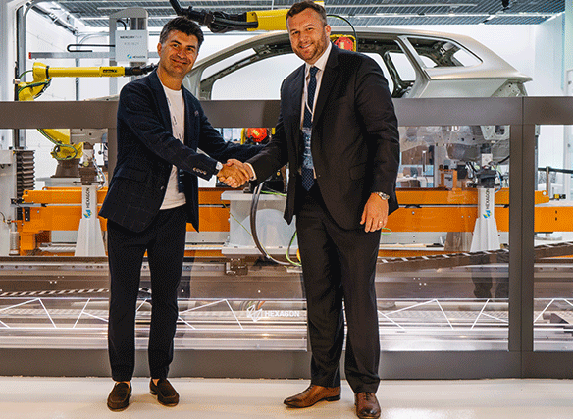The new agreement between the parties will enable SEAT to optimize its production and make decisions on real-time adjustments to its processes regarding the measurement and quality control systems. Through the expanded collaboration, the joint project team will, as mentioned in the intro, integrate a digital twin that applies measurement data with process simulations to predict results and improve manufacturing efficiency.
Important aspects of the agreement
Of the three pillars discussed in the introduction – digitization of the manufactured parts of the vehicle, management of digitized information and simulation of processes – the management of digitized information is built on using Hexagon’s eMMA data management, quality planning and analysis platform. This solution automatically captures measurement data from Hexagon and other third-party measurement systems and manages it in a standardized way. The centralization of all 3D measurement data captured during the digitization process facilitates informed and efficient decision-making, enabling SEAT production and quality managers to monitor the condition of parts and optimize quality in all assembly phases.
Simulation enables accurate predictions of problems
The third key aspect is process simulation, which enables SEAT’s quality analysts to accurately predict problems and optimize critical vehicle manufacturing processes such as part alignment, assembly and subsequent welding operations. Thanks to Hexagon’s simulation solutions, SEAT can optimize production and adjust production settings using a virtual prototype of the product, speeding up the process of fine-tuning the production methods that will be used in the series production phase. This capability translates into a significant cost reduction, a reduction in material waste and an improvement in time to market for the new vehicle models.
Josh Weiss, CEO of Hexagon’s Manufacturing Intelligence division, says that those solutions implemented at SEAT will help the company to be at the forefront of the automotive industry:
“It will, and we will achieve this by implementing these innovative digital processes, which change the agility of manufacturing and take control of quality from the start. By combining technologies such as automated quality inspection, connected quality workflows and virtual manufacturing, SEAT is able to monitor every step of production with significant savings in time, material waste and costs,” he said.






